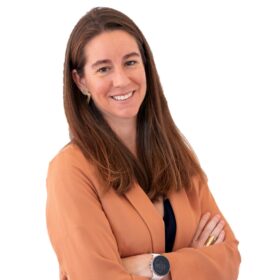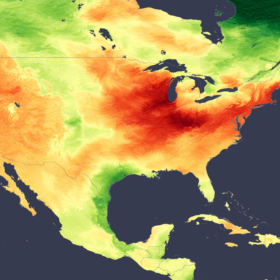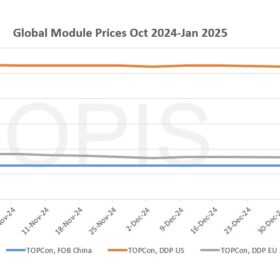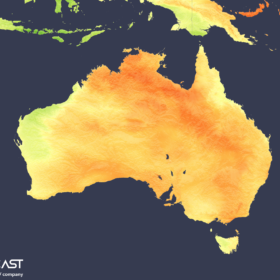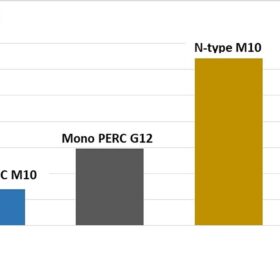‘Lack of transparency can discourage talented women from pursuing leadership roles’
This week, Women in Solar Europe (WiSEu) gives voice to Maria Colom, Head of Distributed Solar, Storage & Green Mobility at France’s Engie. She says recruitment and promotion processes must be clear, fair, and merit-based to ensure equal opportunities for all. “By implementing measurable and data-driven approaches, organizations can build trust and foster a truly equitable workplace,” she states.
Western clear skies drove solar gains and fire risks in January
In a new weekly update for pv magazine, Solcast, a DNV company, reports that atmospheric conditions led to variations in solar conditions across North America. According to analysis using the Solcast API, ISO New England and PJM outperformed long-term trends in capacity-adjusted performance, whereas ERCOT performed only slightly above average.
Global solar module prices mixed on differing demand outlook
In a new weekly update for pv magazine, OPIS, a Dow Jones company, provides a quick look at the main price trends in the global PV industry.
Top 5 global inverter trends to watch in 2025
Challenges and innovations drive solar and energy storage inverter industry forward in 2025.
‘My female leader was a great mentor and cheerleader, providing invaluable guidance’
This week, Women in Solar Europe (WiSEu) gives voice to Jeanette Pretorius, SVP Supply Chain at Norway’s Scatec ASA. Shey says that renewable energy companies must prioritize the need for more senior female leaders to promote greater equity. “Working for a company that leads in diversity and equity, I have not faced significant internal challenges. However, in external meetings, I often find myself the only woman at the table,” she states.
Solar gains across Australia defy seasonal cloud forecast
In a new weekly update for pv magazine, Solcast, a DNV company, reports that Australia’s summer has been much sunnier than expected so far, with localized weather events only bringing brief disruptions.
Solar wafer price rebound nears its limit
In a new weekly update for pv magazine, OPIS, a Dow Jones company, provides a quick look at the main price trends in the global PV industry.
Actionable insights to safeguard solar projects from hail damage
The second article in a two-part series from VDE Americas looks at hail risk mitigation measures that continue advancing through improved materials, prediction capabilities and refined stow strategies.
PV module prices at crossroads
Martin Schachinger, founder of pvXchange.com, said PV module prices will depend on national and international demand trends in the coming months, with outcomes ranging from increases to stagnation or further declines. Almost anything is possible, but nothing is certain.
Carbon dioxide removal portfolios enable reaching ambitious climate targets
In a new monthly column for pv magazine, the LUT University describes how carbon dioxide removal may support reaching climate targets from a portfolio perspective.
